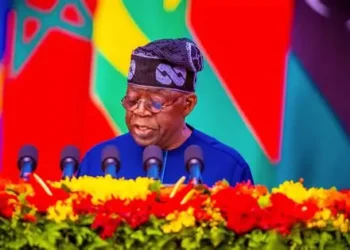Donald Trump wants to end the Russia-Ukraine war if he wins the presidential election. Apparently, he could guarantee that NATO does not expand to Ukraine. As for the Ukrainian territories currently occupied by Russia, it is not excluded that the conflict may end with a ceasefire on the current front line.
Today, however, we do not know whether Trump will win the election and whether, if elected president, he will be able to end the conflict in a way that would be acceptable to Ukraine as well. On the scene has appeared J. D. Vance as Trump’s candidate for vice president. His attitude towards Ukraine leads us to the unwanted assumption that there could be a deal between the US and Russia, and Ukrainian interests could be ignored.
At the same time, on July 11, the Washington Post published a commentary (op-ed) by the former Slovak Deputy Prime Minister, diplomat, and European Commissioner, special envoy for freedom of religion outside the EU, and founder of the Institute of Innovation and Technology, Ján Figeľ, on the possibilities of overcoming war violence and creating a comprehensive, just, and sustainable peace. Figeľ warns of the danger of further escalation of the conflict and calls for the preparation of a kind of Schuman plan no. 2.
He recalls that in 1950, the then French Minister of Foreign Affairs, Robert Schuman, offered an unprecedented peace plan to the hostile nations of Germany, Italy, and other European countries. Schuman, West German Chancellor Konrad Adenauer, Italian Prime Minister Alcide De Gasperi, as well as French diplomat Jean Monnet, were the initiators of achieving a common goal: preventing a new war in Europe through reconciliation, cooperation, treaty law, and common institutions. This goal has become a reality, and as a community (now called the European Union), it has existed in Europe for 70 years. He pointed out that cooperation between Moscow and Washington was the basis of the victory over Nazism and fascism in Europe. In the same way, the demise of communism was achieved in the dialogue between the West and the East – between Washington and Moscow.
The commentary says that Ján Figeľ is chairing a private initiative to create a new dialogue between representatives of the United States, the Russian Federation, and the European Union, drawing on these historical events and experiences. According to Figeľ, mutually beneficial cooperation can lead to the creation of a large community from Alaska to Vladivostok through Europe and Central Asia. Such a zone of security, cooperation, and prosperity in the northern hemisphere would represent a guarantee for peace and stability in the world. Shared security, states Figeľ, should be offered to all NATO states and the former Soviet Union. Prevention for the future would consist of sharing resources and security. At the end of his commentary, Figeľ points to a reference according to which “a united Europe was the dream of a few, the desire of many, and has become a necessity for all.”
Perhaps Figeľ’s initiative may seem unacceptable to some because it raises doubts that it should be taken as a basis for future negotiations on Russian-Ukrainian peace. That is, without Ukraine? We don’t even know anything about the level of participants in Figeľ’s dialogue. What we do know is the need to end the Russian-Ukrainian conflict, and Russia does not seem to have any plans for that yet. Therefore, the initiative should be understood more as a visionary effort to ensure future conditions in the world for the better, as a kind of new Schuman and Marshall plan.
Until then, military aid and political support to Ukraine, including from the US, is desirable. If J. D. Vance were given the opportunity to somehow shape policy towards Ukraine, I believe that as he turned from a never-Trumper to a supporter of Trump, he will show a sense of justice and stand for ending the conflict to the satisfaction of the Ukrainians.









